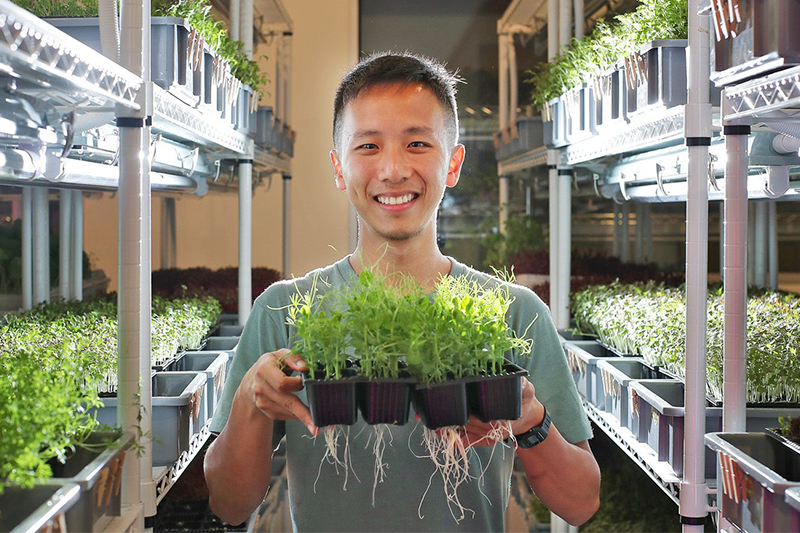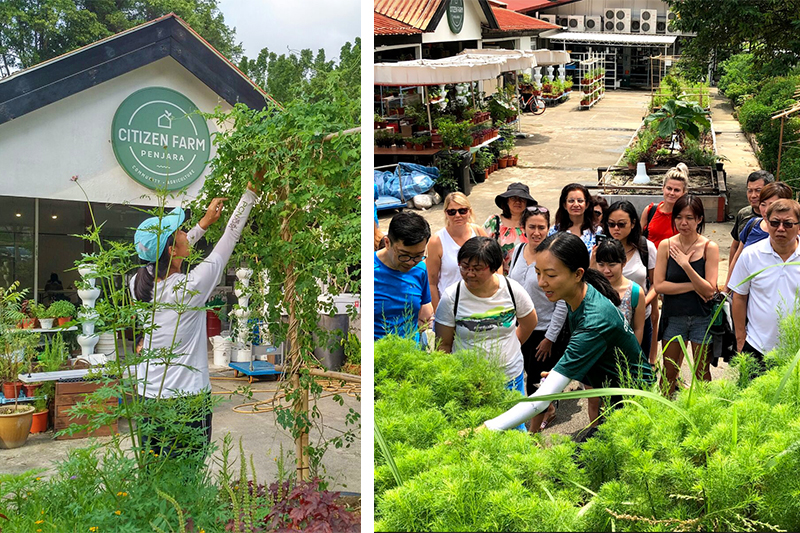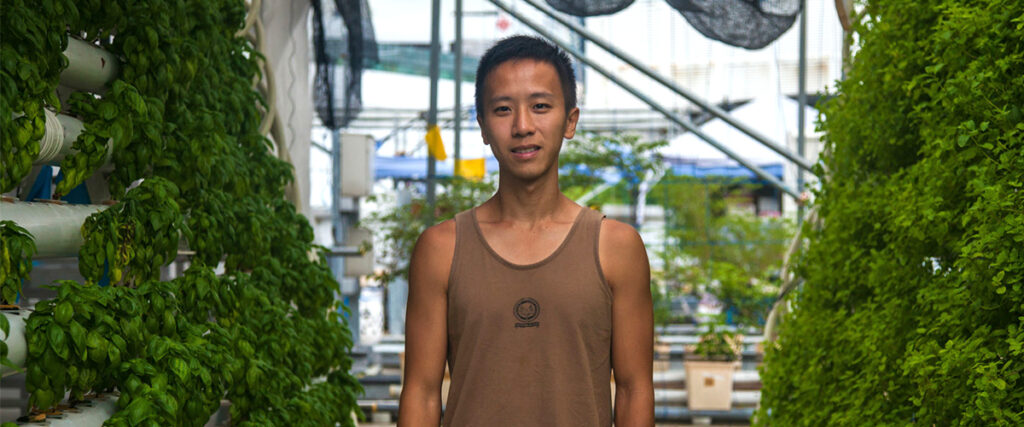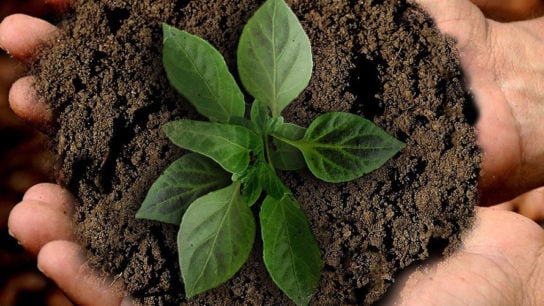Those fresh vegetables you enjoy at that cafe or restaurant may very well come from Citizen Farm, a Singapore-based urban farm which harvests produce in a manner that does good for farmers and the environment alike.
It’s one thing to grow greens, but another to do it sustainably. Citizen Farm is an urban farm that’s connecting people with food again, producing a wide range of fresh produce for the Asian palate. Unlike traditional farms that require sizeable land space, this one uses vertical farming and a no-waste approach to obtain more produce using fewer` resources within Singapore’s concrete jungle. Making this dream possible is a dedicated team of farmers and over 40 leading food establishments, such as 1-Altitude and Super Loco.

If Citizen Farm rings a bell, that’s because it’s an offshoot of Edible Garden City, a grow-your-own-food movement that started in Singapore back in 2012. The latter was set up to encourage people and businesses to cultivate their own produce in underutilised spaces such as rooftops and backyards, rather than purchasing them from imported sources. This built the foundation and a community for urban farming to thrive, and as advocacy for the green movement grew, the need for a place to carry out large-scale farming and education became increasingly necessary. As a result, Citizen Farm was born last June to meet that very purpose, taking the philosophy of sustainable farming that Edible Garden City created and turning it into a viable commercial option that creates tangible impact for all.
Citizen Farm sits on former prison grounds that span 8,000 square metres. Located between the upscale dining enclave of Dempsey Hill and the Queenstown heartlands, the farm allows a multitude of produce to be grown. Think vegetables such as lettuce, kale and spinach; herbs such as basil, mint and lemongrass; even micro-greens the likes of cresses and coriander.
Heading the farm is Darren Ho, a full-time urban farmer whose interest in agriculture came from his visit to farms overseas. Armed with a degree in natural resource management and aided by a 10-man team and a steady number of volunteers, Darren conducts social engagement workshops for the public while tending to the farm daily. “We can grow almost anything,” Darren says. “But the question is, can we do it in a sustainable and environmentally responsible manner? That’s presently what Citizen Farm is here to do.”

Its success lies in the marriage of technology and a unique farming model. Land-scarce Singapore does not allow for large plots of space to be used for soil-based farming, so urban farmers like Darren embrace tried-and-tested concepts like vertical farming and hydroponics, cleverly designing layered indoor farms where produce can be grown in stacked structures and nourished under controlled conditions, some even without the need for soil. Rather than rely on the linear farming approach that most agricultural workers use, one where crops are grown and sold without regard for the environment, Citizen Farm adopts a “circular economy” model to harvest its crops. Instead of incinerating food waste and agricultural byproducts, this farm turns them into fertiliser for soil and plants. What results is high-quality produce and a reduction of wastage up the chain that allows farming to be as carbon neutral as possible. “Technology has helped us get four to five times more yield for the same space, as opposed to the conventional methods of farming,” Darren explains.
Citizen Farm’s efforts have paid off. A number of local restaurants, hotels and supermarkets have shown their support by buying local produce from them, indirectly strengthening the ecosystem for urban farming to prosper. Individuals can also buy the Citizen Box, an 8-week supply of greens sold by Citizen Farm that costs SGD 363.80. “Consumer behaviour is more important now than ever,” Darren admits. “We can plant the seeds for sustainable farming, but the onus is on the people to make sense of the benefits they get from choosing homegrown produce, even if it’s more expensive, and to really vote with their dollar by buying local.”
Thankfully, the farm’s work, coupled with heightened awareness about green practices, has gotten the government’s attention. Information sharing on improving farming practices and expansion talks are ongoing, and Darren is optimistic that urban farming will make its way to other parts of Singapore and bring back a real connection to food. “Singapore is very rich in every sense—people, companies and infrastructure,” he says. “All these components need to come together to show that the liveability of Singapore is at its best and is how a city should be designed, should function and should exemplify the use of farming space.”
Address: 60 Jalan Penjara
https://www.citizenfarm.com.sg/
Related Articles
Your Guide to AgriTech in Singapore
MioTech: The Asian FinTech Company Built on AI, Sustainability and Friendship




